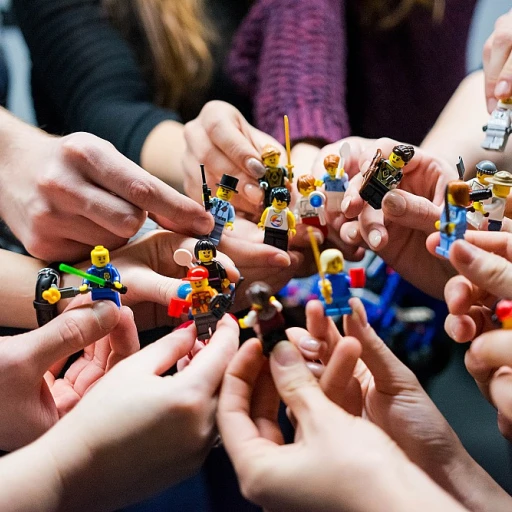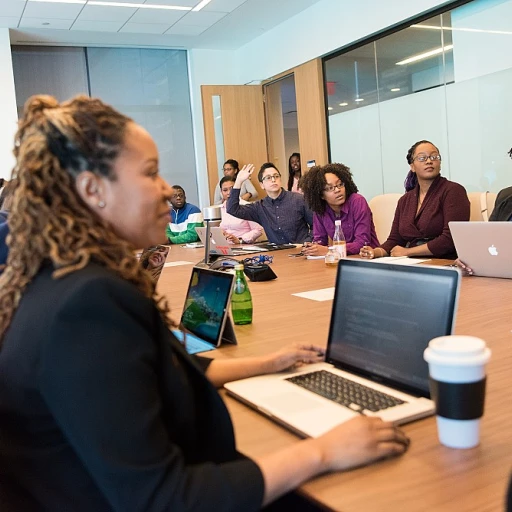
Understanding the Role of Mentoring in Software Engineering
The Significance of Mentoring in Software Engineering
Mentoring plays a pivotal role in the realm of software engineering, not just in the development of technical skills but also in nurturing soft skills critical for career growth. For software engineers, mentoring is more than just guiding junior members; it's about shaping a conducive environment for scalable growth and problem-solving. In software development, junior engineers often face challenges that surpass technical issues. Engaging them in a meaningful mentoring relationship can help bridge the gap between theoretical knowledge and practical application. By reflecting on past experiences and sharing insights, mentors are equipped to translate complex concepts into comprehensible lessons. A well-structured mentoring program can significantly enhance the employee experience by promoting effective talent management. This involves addressing behavioral interview questions, fostering communication skills, and enhancing teamwork abilities. It's essential for senior software engineers to facilitate a supportive learning culture where team members feel empowered to ask questions and seek guidance. Furthermore, the importance of mentoring extends to behavioral aspects, enabling engineers to develop soft skills alongside technical acumen. This holistic approach ensures that an organization's workforce evolves, adapting to both current demands and future technological advancements. By nurturing these dimensions, companies can help their employees not only perform their duties effectively but also thrive within the organization. In summary, mentoring in software engineering serves as a catalyst for personal and professional growth, improving overall employee satisfaction and contributing to a healthy, innovative workplace culture. For more on enhancing employee experience through effective talent management, check out this insightful resource here.Key Attributes of a Successful Mentor
Characteristics That Define a Good Mentor
Understanding what makes a successful mentor can significantly enhance the mentoring relationship, leading to improved software development skills and a more cohesive team. There are essential traits and abilities that every mentor should possess to effectively guide their mentee in the field of software engineering.- Strong Communication Skills: At the core of successful mentoring is the ability to communicate effectively. A mentor should be adept at articulating complex technical concepts in ways that are understandable. This includes offering clear and constructive feedback on technical skills, soft skills, and problem-solving techniques.
- Listening Ability: A mentor's job isn't just about giving answers; it's also about fully understanding the questions and concerns of the mentee. Active listening helps in understanding the needs and goals, thereby personalizing the mentoring approach.
- Empathy and Patience: Being empathetic can help build trust and create a safe environment for mentees to express their challenges without fear of judgment. Coupled with patience, empathy ensures mentors can help guide their mentees through complex challenges without frustration.
- Technical Proficiency: A mentor must have a robust understanding of software engineering. This expertise allows mentors to guide mentees through software development processes and technical interview questions effectively, offering educational and practical examples along the way.
- Problem-Solving Skills: Much of mentoring involves equipping mentees with effective problem-solving strategies. Mentors should model good problem-solving behaviors and help mentees to develop these skills independently.
- Commitment to Development: Mentors should also have a sincere interest in the professional and personal growth of their mentees. A commitment to the development of team members underscores a mentoring relationship that enhances the employee experience.
Examples of Effective Mentoring Interview Questions
Diving into Effective Mentoring Interview Questions
When stepping into a mentoring interview or crafting a mentoring relationship within software development, it’s critical to align expectations and gather insights through well-considered questions. Here’s a closer look at some questions which can effectively unfold the nuances of a mentee’s needs and a mentor's capabilities.- Describe a time when you faced a significant challenge in a software development project. How did you approach problem-solving?
- What skills do you prioritize developing in your mentees, and how do you tailor your mentoring to suit different team members?
- Provide an example of a time when you helped a junior software developer improve their project outcomes through mentoring.
- Can you share an instance where you had to adapt your communication skills to mentor effectively?
This question enables an exploration of the candidate’s problem-solving skills and technical ability. An effective example answer may include a situation where the individual identifies a critical bug affecting team productivity and outlines steps taken to resolve it, demonstrating both technical savvy and leadership.
This dives into the mentor's commitment to continuous skills development. In a successful mentoring interview, an answer might include acknowledging the diverse levels of experience in a software engineering team and adjusting methods to foster both hard and soft skills improvement.
Behavioral questions like these assess the interviewee's ability to contribute positively to the team's growth. An example answer could detail providing guidance that helps a junior developer enhance their coding efficiency, reflecting the mentor’s dedication.
Communication is a key attribute. This question evaluates how well a mentor can shift gears to best support mentees. An insightful answer might reveal a scenario where feedback was customized to meet a mentee’s unique learning style, showcasing flexibility and understanding.
Crafting Thoughtful Answers to Mentoring Questions
Providing Insightful Responses to Mentoring Queries
Navigating through the mentoring interview process, particularly for software engineers, demands a nuanced approach to crafting thoughtful responses. The ability to articulate one's experiences, skills, and viewpoints plays a crucial role in determining the success of a mentoring relationship.- Highlight Technical Expertise and Experience: While answering questions, make sure to outline your software development experience and problem-solving skills. For instance, when asked to describe a time when you faced a complex technical challenge, offer a detailed example of how you leveraged your technical skills to overcome it.
- Emphasize Soft Skills: In addition to technical expertise, it's vital to showcase your communication skills and ability to collaborate with team members. Behavioral questions often aim to assess these competencies, so prepare to share examples where your soft skills led to successful outcomes in a team environment.
- Assess Your Mentoring Style: A common theme in interviews for mentoring roles is your approach to guiding others. Describe your process for helping mentees achieve their developmental goals, ensuring to focus on personalized strategies that apply to different individuals’ needs.
- Express Commitment to Continuous Learning: Software engineering is ever-evolving, thus demonstrating your commitment to learning and adapting is essential. When confronted with questions about your development strategy, depict how you stay updated with industry trends and incorporate new knowledge into mentoring.
- Demonstrate Problem Solving with Real-World Examples: When addressing interview queries on your problem-solving abilities, present real-life examples of how you've helped teams or individuals tackle software engineering challenges effectively.













